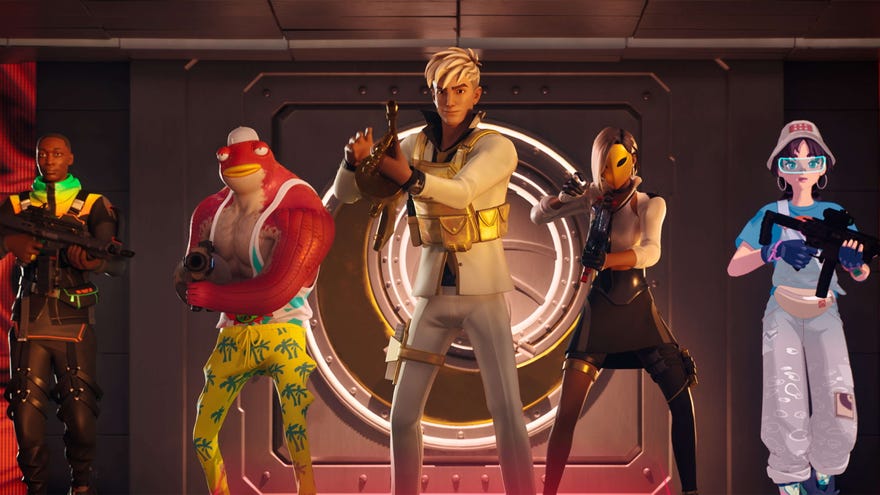Science reveals some people might just be better at Fortnite because they see in a higher FPS
While others are experiencing life at 35FPS and below
I have spent most of my working life looking at efforts to breach the FPS event horizon, and going 'OMG who cares, they literally all look the same?'. People like our hardware editor James then point and laugh at me, as an objectively wrong person. But according to a small study highlighted by the Guardian, I might have been right too! Turns out there's evidence that we might all see life at different FPS. That player might not be cheating, he might just experience Fortnite at a speed you don't.
It's called 'temporal resolution' - how fast your brain interprets what your eyes see. If you have high temporal resolution the world seems very slightly slower to you than someone with low temporal resolution, so it may be you can react a tiny bit faster, too. The test carried out (full results here) involved sitting people in front of a light and increasing the speed at which said light flickered, until the participants could no longer detect the flickering. Some poorly-optimised rubes thought the light stopped flickering at 35 flashes a second, while others could still see it at above 60. Big variance - although it was only on 80 people, between 18-35, so you'd need a bigger, more detailed study to get a more accurate set. The Guardian says that other research has suggested that your temporal resolution dips as you get older, which makes sense, and also after you've done intense exercise. So yoked that you speed up time.
When you say 'different people interpret visual signals at different speeds', it seems fairly obvious. Of course we do! We are mannequins made of meat, animated by electricity. We don't have quality control to make sure we all have the same eye latency. But what it means is that some people might just be naturally better at, say, fast-moving FPS games, because they 'see' what's going on faster than others.
It would be interesting to know what your own score was, right? There's a world in which knowing it would mean you didn't have to bother buying high refresh rate monitors if you knew it wouldn't make a difference to you. As pointed out by my podcast colleague Nate, there's also a world in which people who want to play professional esports have to provide their, like, temporal resolution certificate. Anyone under 40 FPS need not apply.









